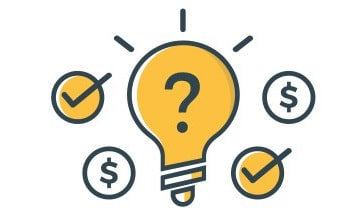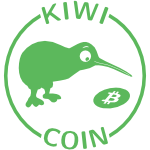New Zealand Bitcoin Exchanges
This guide explores various options for trading Bitcoin and other cryptocurrencies on exchanges in New Zealand.
Updated 8 August 2023
Summary
We've published this guide to help anyone curious about how crypto exchanges work, and what options are available to New Zealand residents. Our guide covers:
Warning:
- Exchanges differ from other venues where you can buy cryptocurrencies, such as brokers or dealers, which we discussed in our How to Buy Bitcoin in New Zealand guide. The main distinguishing features of exchanges are extended trading functionality, lower fees and more trading pairs.
- There are different types of crypto-exchanges, such as fiat exchanges, stablecoin exchanges, decentralised exchanges and derivatives exchanges.
- Exchanges have many similarities and differences to regulated stock exchanges, which are highlighted in this guide.
We've published this guide to help anyone curious about how crypto exchanges work, and what options are available to New Zealand residents. Our guide covers:
- What is a Cryptocurrency Exchange?
- Types of Bitcoin Exchange
- Crypto Exchanges versus Stock Exchanges
- Bitcoin Exchanges for New Zealand Investors and Traders
- Bitcoin Exchanges - Frequently Asked Questions
Warning:
- By publishing this guide we are not recommending or suggesting in any way or form that Bitcoin or any other cryptocurrency is a suitable investment. It is published to help people understand bitcoin (and cryptocurrency) exchanges in detail - MoneyHub is conservative and our publisher, Christopher Walsh, has zero Bitcoin or other cryptocurrency investments.
- We present this information in good faith and remain objective at all times. By including this guide under our Investing and Saving section, we are not advocating that cryptocurrency is an investment. We may earn a referral bonus for anyone that clicks on some of the below links - see our Advertising Policy for more details.
Know this first:
- The price of Bitcoin has proven to be turbulent, with broad intraday price swings in the range of several thousands of dollars there are opportunities to lock in some gains by speculating on the frequent ups and downs, should they persist.
- The market volatility might be appealing to short-term traders and speculators, rather than long-term investors, often referred to as HODLers in the crypto-community. Keep in mind that active day trading is hazardous and should only ever be conducted by investors with adequate experience in risk management and market timing.
- Even if you’re not a day-trader, it might benefit you greatly to understand how Bitcoin exchanges work and which ones are available to New Zealanders.
Cryptocurrency Exchanges vs Platforms - What is the Difference?
- A cryptocurrency exchange is a marketplace for buyers and sellers to trade cryptocurrencies with each other. The prices for each cryptocurrency reflect current market prices. Exchanges charge fees for trading and are usually more popular with experienced users.
- Cryptocurrency platforms let you buy and sell cryptocurrency at prices set by the platform. Platforms are generally less complicated than exchanges and make their money from building in a margin/commission in each trade, usually around 3% - 5%.
Buying bitcoin with two local and trusted platforms - Easy Crypto and Swyftx (important - these are not exchanges)
- Our research highlighted several bitcoin platforms, but few are based in New Zealand and offer transparency. For this reason, we suggest considering the locally-owned (and trusted) Easy Crypto and Swyftx, an Australian-based platform.
- Please note, both of these New Zealand-based companies are platforms (not exchanges).
- These two platforms are popular with our users, have esteemed reputations and are trusted by tens of thousands of New Zealanders.
- Both options are free to join, funded from any New Zealand bank account/card, and in the case of Easy Crypto, there is a local support team.
- Advertising Disclosure: We may earn a referral bonus for anyone that clicks on some of the below links - see our Advertising Policy for more details.
What is a Cryptocurrency Exchange?
A cryptocurrency exchange is a venue where you can trade Bitcoin and many other cryptocurrencies. An exchange facilitates trades between buyers and sellers by hosting an order book and matching orders. The exchange’s order book is populated with limit orders submitted by users of the exchange.
Exchanges work with two types of orders; market orders and limit orders. A limit order is submitted with a specified price, and the exchange must fill the order at the specified price, or better. Limit orders will rest in the order book until they are matched to other users’ orders, usually market orders. A market order will be immediately filled using the order book’s best available prices.
Exchanges work with two types of orders; market orders and limit orders. A limit order is submitted with a specified price, and the exchange must fill the order at the specified price, or better. Limit orders will rest in the order book until they are matched to other users’ orders, usually market orders. A market order will be immediately filled using the order book’s best available prices.
As you can see from the image above, there are numbers and a graph in green, which represent buy limit orders, and orange represents sell limit orders. The height of the graph refers to the depth of the market. You can see there are pending orders to buy just over 10,000 BTC and orders to sell more than 6,000 BTC in this example.
Liquidity is an essential characteristic of a practical exchange. An active and liquid market usually results in better prices.
Liquidity is an essential characteristic of a practical exchange. An active and liquid market usually results in better prices.
Crypto Exchanges Versus Brokers and Dealers
Our how to buy Bitcoin in New Zealand guide focuses primarily on buying cryptocurrencies locally in New Zealand. This guide concentrates on exchanges. Before diving in, we surmise the differences between crypto exchanges and brokers.
Crypto exchanges offer a comprehensive trading experience by providing platforms with configurable charts with adjustable timeframes, formats, and technical analysis tools. The interface shows the order book, depth chart and a stream of last trades. You’re able to submit pending limit and market orders (better known as stop orders). This option is suitable for active or experienced traders.
A Bitcoin retailer or broker offers an e-commerce experience when buying cryptocurrencies, typically via debit or credit card. These services only provide a simple interface and do not have advanced order types or price analysis tools. This option is suitable for someone who wants to buy Bitcoin without much fuss.
Crypto exchanges offer a comprehensive trading experience by providing platforms with configurable charts with adjustable timeframes, formats, and technical analysis tools. The interface shows the order book, depth chart and a stream of last trades. You’re able to submit pending limit and market orders (better known as stop orders). This option is suitable for active or experienced traders.
A Bitcoin retailer or broker offers an e-commerce experience when buying cryptocurrencies, typically via debit or credit card. These services only provide a simple interface and do not have advanced order types or price analysis tools. This option is suitable for someone who wants to buy Bitcoin without much fuss.
Buying bitcoin with two local and trusted platforms - Easy Crypto and Swyftx (important - these are not exchanges)
- Our research highlighted several bitcoin platforms, but few are based in New Zealand and offer transparency. For this reason, we suggest considering the locally-owned (and trusted) Easy Crypto and Swyftx, an Australian-based platform.
- Please note, both of these New Zealand-based companies are platforms (not exchanges).
- These two platforms are popular with our users, have esteemed reputations and are trusted by tens of thousands of New Zealanders.
- Both options are free to join, funded from any New Zealand bank account/card, and in the case of Easy Crypto, there is a local support team.
- Advertising Disclosure: We may earn a referral bonus for anyone that clicks on some of the below links - see our Advertising Policy for more details.
Types of Bitcoin Exchange
Bitcoin and cryptocurrency exchanges come in various flavours, before settling on an exchange for your crypto-trading activities, consider these variables:
Fiat exchangesFiat exchanges offer relatively seamless methods to fund your trading account using fiat currencies, i.e. New Zealand dollars or US dollars. Additionally, fiat exchanges will offer trading pairs which consist of one cryptocurrency and one fiat currency, i.e., BTC/USD, ETH/EUR. It is not common to find exchanges offering a market for BTC/NZD.
Keep in mind that BTC/USD will always be the most liquid fiat denominated Bitcoin market. The impact of having more substantial liquidity is tighter spreads and more weight behind the better prices. |
Stablecoin exchangesMany exchanges rely on a concept called stablecoins, which are a type of cryptocurrency backed one-for-one with a fiat currency. As the issuer of a stablecoin commits to backing the coin one-for-one, the price remains stable. You may have heard of Tether (USDT) or True USD (TUSD), these are examples of well-known stablecoins.
Due to the legal and regulatory implications of holding customer deposits in national currencies, or offering a market quoted in fiat currencies, exchanges circumvent complications by using stablecoins instead. The experience traders have on the trading platform is seamless, but some extra steps are involved when repatriating your money. |
Decentralised exchangesDecentralised exchanges, also known as DEXs, are less common due to many traits that most people would consider cumbersome. The primary advantage of using a DEX is they operate without holding funds in an exchange account to place orders.
DEXs primarily appeal to privacy & security advocates and blockchain enthusiasts. The reality is, these platforms are slow and have a low rate of adoption, resulting in low liquidity, underdeveloped trading features and ultimately a poor trading experience. |
Derivatives exchangesMany large crypto exchanges have evolved from merely offering spot exchange markets and developed leveraged Bitcoin derivatives trading features. Typical derivatives products include margin trading, futures, perpetual futures, options, and other creative products. Depending on the product, some platforms offer modest leverage of 1-to-10 and others as much as 1-to-200.
Trading Bitcoin and other cryptocurrencies are already very risky. Applying leverage to your trades can have catastrophic consequences. Leverage is only suitable for advanced traders. |
Crypto Exchanges versus Stock Exchanges
If you’re familiar with trading securities on regulated stock exchanges, understanding the role of a cryptocurrency exchange might seem intuitive to you. However, some caveats differ crypto-exchanges from traditional exchange-traded products.
A cryptocurrency exchange is a venue that welcomes traders of all levels; there is no requirement to be a professional institution, nor are there any membership fees or quotas determining how much volume you should trade.
When you open an account with a Bitcoin exchange, usually following verification of your identity, you deposit fiat or crypto to your trading account. After your orders are matched and filled, the exchange is settled in your account immediately, and you may withdraw the purchased asset immediately after the trade is complete.
That might seem very logical, but in the environment of regulated markets, i.e., NZX, ASX, NASDAQ etc., most of these functions are isolated. Purchasing a share of Apple from the NASDAQ exchange will require the participation of a broker-dealer, a depository, a transfer agent, and of course, the stock exchange.
A cryptocurrency exchange is a venue that welcomes traders of all levels; there is no requirement to be a professional institution, nor are there any membership fees or quotas determining how much volume you should trade.
When you open an account with a Bitcoin exchange, usually following verification of your identity, you deposit fiat or crypto to your trading account. After your orders are matched and filled, the exchange is settled in your account immediately, and you may withdraw the purchased asset immediately after the trade is complete.
That might seem very logical, but in the environment of regulated markets, i.e., NZX, ASX, NASDAQ etc., most of these functions are isolated. Purchasing a share of Apple from the NASDAQ exchange will require the participation of a broker-dealer, a depository, a transfer agent, and of course, the stock exchange.
Function |
Crypto |
Equities |
Market access |
Crypto-exchange |
Broker-dealer |
Order execution |
Crypto-exchange |
Stock-market |
Settlement |
Crypto-exchange |
Transfer agent |
Holding assets |
Crypto-exchange |
Depository |
Safeguarding |
Cold wallet/hard wallet |
Custodian bank |
Bitcoin Exchanges for New Zealand Investors and Traders
Assuming you have weighed the pros, cons and risks of investing in or trading cryptocurrencies on an exchange, here is a brief list of options open to New Zealanders.
Swyftx
Swyftx launched its dedicated New Zealand platform in August 2021 with a focus on low fees, minimal spreads and a wide choice of coins. The exchange offers 280+ different coins, including Bitcoin. Almost all coins are able to be sourced through the Swyftx order page.
The details:
The details:
- Fiat payment methods: To buy Bitcoin with New Zealand dollars on Swyftx, only bank transfers are permitted.
- Withdrawal fees: Minimum withdrawal of NZ$30 with a NZ$10 withdrawal fee.
- Trading fees: 0.6% platform fee on the value of the transaction. Swyftx states that it offers high volume discounts.
- Verification requirements: The steps from signup to trade are simple - first, users create an account (by entering their name and details). Then, Swyftx verifies your ID (via photo ID, phone number and email address) and, once done, asks for a deposit (made via bank transfer). Once the deposit has cleared, users can start trading.
- Limits: Daily deposit limit up to NZ$50,000, no trading limits.
- Markets available: Various
- More details: Visit Swyftx and/or read our Swyftx review.
Binance
Binance is one of the largest cryptocurrency trading platforms in the world, according to daily trading volumes. Besides hosting one of the most active Bitcoin exchanges, the platform offers a wide range of alternative coins and trading pair combinations. In total, you can find almost 400 crypto assets and well over 1,000 trading pairs. Binance offers a series of other crypto investment products and services alongside spot exchange trading. To name a few, you can find margin trading, peer-to-peer listing to buy or sell crypto, futures, vanilla options, binary options and various passive income products.
The details:
The details:
- Fiat payment methods: To buy Bitcoin with New Zealand dollars on Binance, you can use your debit/credit card via a third-party payment provider called Simplex. The card processing fees are 3.5% with a minimum fee of US$10.
- Withdrawal fees: Fees vary depending on the cryptocurrency you’re withdrawing. In the case of Bitcoin, the fee is 0.0005 BTC.
- Trading fees: Binance offers a maker-taker fee model that also dynamically reduces according to trading volume. At the first tier, the fees to trade on the classic spot exchange are 0.1% for maker and taker trades. To reach the second tier, you’ll need to trade at least 50 BTC within 30 days or own at least 50 BNB, which is a native cryptocurrency issued by Binance.
- Verification requirements: You can trade on the Binance exchange without doing KYC verification. By not verifying your account, you’ll experience some restrictions. The most noticeable limitation is that you won’t be able to buy Bitcoin using your credit or debit card. Other restrictive measures imposed on an unverified account is a limit of withdrawing 2 BTC per day.
- Limits: With a verified Binance account, the withdrawal limit is 100 BTC per day.
- Markets available: 1,256 different trading pairs are available. Most coins are traded against USDT, BNB, BTC, ETH. Binance even offers AUD denominated markets, but unfortunately, no NZD.
- More details: Binance and/or read our Binance Review
Kiwi-Coin
Kiwi-Coin is a New Zealand owned and operated Bitcoin exchange that hosts a BTC/NZD market for exchanging New Zealand dollars to Bitcoins and vice versa. The company is a registered New Zealand financial service provider. When compared to the international competition, Kiwi-Coin lacks many features. The main talking point of this platform is the BTC/NZD market, but keep in mind that low liquidity is to be expected and spreads can be very wide, for instance, at the time of writing, the spread between the bid and offer is NZ$2,766.74.
The details:
The details:
- Fiat payment methods: Use POLi for instant transfers, local NZ bank transfer can take up to two days to be reflected on your account.
- Withdrawal fees: NZ$10 is charged for withdrawing dollars, and the Bitcoin network charges a small fee for processing BTC withdrawals.
- Trading fees: A maker-taker fee model is used. The maker fee is 0.4%, and taker fee is 0.8%.
- Verification requirements: To use Kiwi-Coin, you need to verify your identity, preferably by using the RealMe service provided by the New Zealand Government. Other details required include information about your source of funds and address.
- Limits: NZ$10,000 per day, or NZ$50,000 per month
- Markets available: BTC/NZD
- More details: Kiwi-Coin
Independent Reserve
Independent Reserve is a well-known cryptocurrency exchange based in Australia. The company was founded in 2013 and has grown to have more than 150,000 clients from Australia and New Zealand. Independent Reserve is a member of Blockchain Australia, a non-government organisation promoting blockchain innovation in Australia. The company has achieved many noteworthy milestones; one specific example is that the Bloomberg terminal sources BTC/AUD quotes from Independent Reserve and distributes them to users worldwide.
The details:
The details:
- Fiat payment methods: From New Zealand, you can deposit New Zealand dollars or US dollars using a SWIFT transfer. Deposits greater than the equivalent of US$5,000 are free, whereas deposits lower than this amount will incur a fee of US$15. For Australian’s, they benefit from far cheaper bank transfers and alternative payment methods PayID and Osko.
- Withdrawal fees: International withdrawals in either NZD or USD will incur a charge of US$20, regardless of the value of the transfer. To withdraw cryptocurrencies, there is a fixed fee specified for each coin. The fee for withdrawing Bitcoin is 0.0003 BTC.
- Trading fees: A dynamic fee discount model is used. Trading commissions start from 0.5%, and after trading volume exceeds the equivalent of AU$100,000 within 30 days, fees are lowered.
- Verification requirements: Besides verifying your identity, Independent Reserve requires clients to pass several steps to secure their account. The measures include setting up a secure password, configuring 2-factor authentication, validating a primary and secondary phone number,
- Limits: Limits vary depending on circumstances.
- Markets available: BTC, ETH, LTC, BCH and 20 other cryptocurrencies against AUD, USD and NZD.
- More information: Independent Reserve and/or read our Independent Reserve Review
Platforms and Retailers (Not Exchanges) Popular for Bitcoin (and other Cryptocurrency buying and selling)
A bitcoin exchange is arguably something for more advanced investors and experts. We've listed two New Zealand-owned platforms below which act as retailers, a process which is more accessible.
Easy CryptoEasy Crypto is another example of a popular destination to buy and sell Bitcoin and a series of other digital assets in New Zealand. Easy Crypto has also adopted the non-custodial route and requires users who buy cryptocurrencies from them to have a private wallet to receive the settlement of their purchase. Moreover, the company has gone to great lengths to guide users on keeping their cryptocurrencies safe, with recommendations on hardware wallets, and plenty of user guides on each recommended model.
Payment methods: POLI instant pay, debit or credit card, or local NZ bank transfer Fees: All fees are included in the spread, which is why the bid and offer prices might look higher than other platforms. The fees are around 0.70% to 0.90%. Minimum order size: NZ$50 Settlement: Private wallet Coins available: 109, including Bitcoin Learn more: Easy Crypto |
Buying bitcoin with two local and trusted platforms - Easy Crypto and Swyftx (important - these are not exchanges)
- Our research highlighted several bitcoin platforms, but few are based in New Zealand and offer transparency. For this reason, we suggest considering the locally-owned (and trusted) Easy Crypto and Swyftx, an Australian-based platform.
- Please note, both of these New Zealand-based companies are platforms (not exchanges).
- These two platforms are popular with our users, have esteemed reputations and are trusted by tens of thousands of New Zealanders.
- Both options are free to join, funded from any New Zealand bank account/card, and in the case of Easy Crypto, there is a local support team.
- Advertising Disclosure: We may earn a referral bonus for anyone that clicks on some of the below links - see our Advertising Policy for more details.
Bitcoin Exchanges - Frequently Asked Questions
To help explain bitcoin exchanges further, we've included answers to the most common queries below.
What is the difference between maker and taker fees?
It’s a common practice for exchanges to charge different fees depending on the type of order you use; it’s known as a maker-taker model. A maker fee, also known as a market maker fee, is applied when limit orders are used. Limit orders are necessary for building the order book. The larger the order book, the more attractive the exchange is due to greater liquidity levels. Exchanges charge lower fees to market makers to incentivise this type of order. A taker fee is higher since they take liquidity from the market and benefit from the convenience of having their order instantly filled.
Is it safe to hold funds on a Bitcoin exchange?
Sadly no. The best practice is never to keep more funds than are necessary in an exchange account. If you’re planning on holding your Bitcoin or other cryptos for the long haul, you should certainly arrange a self-custody solution. However, if you’re an active trader, it makes sense to maintain a balance on an exchange to support trading operations.
Is it cheaper to buy Bitcoin from exchanges in New Zealand or brokers?
When it comes to buying Bitcoin, the most expensive part of the process is transferring your New Zealand dollars to the exchange to cover the purchase. Buying cryptocurrencies with a debit or credit card is the most expensive method. If you’re sending money to an exchange overseas, try to keep it in the same currency since banks are notorious for charging eye-watering foreign exchange fees. The best-case scenario is transferring money to a local bank account as there are no fees for international transfers or foreign exchange mark-ups.
Why do crypto exchanges charge high fees on withdrawals?
You might have noticed that some cryptocurrency exchange platforms charge relatively high fees to withdraw different coins and tokens. It’s typical to see withdrawal fees of 0.0005 BTC for Bitcoin, 0.005 ETH for Ethereum, and 0.02 BCH for Bitcoin Cash, these charges are the equivalent of NZ$22, NZ$8.50, and NZ$12 respectively.
These costs are far greater than what it costs to process the transaction on the underlying blockchain. The reasons exchanges impose these fees is primarily to discourage traders from using their exchange account as a wallet. Crypto exchanges are required to conduct compliance and fraud checks on every transaction.
These costs are far greater than what it costs to process the transaction on the underlying blockchain. The reasons exchanges impose these fees is primarily to discourage traders from using their exchange account as a wallet. Crypto exchanges are required to conduct compliance and fraud checks on every transaction.
Can I invest in Crypto via KiwiSaver?
Yes, a select few schemes offer the opportunity to do so. One scheme, Koura KiwiSaver, allows members to invest in their Carbon Neutral Crypto Currency Fund. This is a fund that invests exclusively in Bitcoin. It has a long-term buy-and-hold strategy for investing. Please be aware that cryptocurrencies are highly volatile, and while KiwiSaver is a long-term investment, allocating money to crypto is not without risks. You can learn more about the fund here.
Related Guides
- How to Buy Bitcoin in New Zealand
- How to Buy Ethereum in New Zealand
- Easy Crypto Review
- Swyftx Review
- Binance Review
- Independent Reserve Review
- Beginner's Guide to Bitcoin and Blockchain
- Bitcoin in New Zealand
- Bitcoin and Crypto Scams
- Bitcoin Wallets
- Joshua Wang YouTube Guide (buying Bitcoin in New Zealand)

















